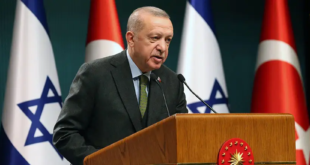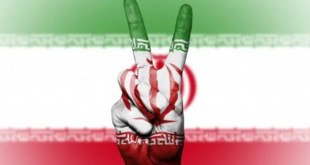LONDON — The biggest obstacle to creating an international peacekeeping force in Lebanon is determining who will lead it, while questions remain over troops and transport, defence analysts said on Thursday.
The two most likely and experienced candidates to lead the peacekeepers would be the European Union or France, with both the United States and the North Atlantic Treaty Organisation (NATO) excluded because of their involvement in Iraq and Afghanistan.
“The United States would be seen as the wrong actor in the region, NATO is seen by some as the wrong actor, as well,” Tim Williams, head of the European Security Programme at the London-based defence think tank the Royal United Services Institute (RUSI), told AFP.
“There is an image concern. The question of who is going to command it has still not been resolved.” Israeli Prime Minister Ehud Olmert said in British newspaper interviews Thursday that he wants some 15,000 foreign troops to be deployed in southern Lebanon to help end its fight with Hizbollah.
But according to RUSI, the EU has little experience leading a force that large. The 7,000-strong troop deployment in Bosnia and Herzegovina is the largest the EU has handled to date, it said.
Another issue is who will contribute troops, with countries likely to be wary because of the mounting death toll in Lebanon, and the bombing of a UN post last week which killed four international observers, according to Charles Heyman, senior defence analyst at defence website armedforces.co.uk.
Sending troops for the force “is not going to be popular after the killing of the UN observers last week,” he said.
“It’s not going to be easy. It’s really not going to be easy.” France, Australia and Turkey have been mentioned as the most likely candidates to send large contingents of soldiers.
But a Turkish deployment, made up mostly of Sunni Muslims, would have the added problem of being faced with the task of keeping the peace in a part of the Middle East where Hizbollah, a Shiite force, is entrenched.
Any country that did send troops would be “intervening between a political consortium of people that aren’t very pleased with the existence of the state of Israel, and Israel itself,” said Bob Ayers, from the respected foreign affairs centre Chatham House in London.
“As Iraq shows, getting between those groups is not necessarily something that anybody in their right mind wants to do.” Even after the organisation of the command structure, and the agreement on which countries will contribute troops, there remains the logistical nightmare of actually transporting them to southern Lebanon.
Moving a contingent of 10,000 to 15,000 troops into Lebanon, along with food, water, communications infrastructure, ammunition and fuel is “like moving a small town,” said former British military officer Heyman, which would then have to be followed by moving the supplies into southern Lebanon by road.
Ayers said that could mean months before any multinational force is actually physically in place.
“To put it together, have it on the ground, have it operational and effective, you’re talking six months,” he added.
 Eurasia Press & News
Eurasia Press & News



